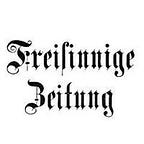Preliminary Remarks
I have written about various subjects on Twitter, Facebook, and elsewhere, both in German and in English. None of these media are congenial to a longer argument, so I was dissatisfied with the results. In addition, things disappear into a stream of tidbits, and if you don’t know both languages and track my activities across various platforms, you often miss a major part. That’s why I have decided to collect some of my remarks in articles here at Medium. And I write in English because that makes what I have to say most accessible.
Before I start, let me be clear: I am by no means an expert and do not claim to be one on any of these topics. So please use your own good judgment, check everything, and always assume that I am wrong. I also have no secret sources with information others don’t have. If my argument is good, it is because the logic is sound and the evidence I use is correct. I will supply links and references for claims, so you can form your own opinion. While I will tacitly correct small mistakes, like typos or stylistic mess-ups, I will make any major changes post publication transparent. Excuse my English at times as I am not a native speaker.
If you wonder what the handle “Freisinnige Zeitung” means. This was the name of a newspaper that was founded by the great German journalist and politician Eugen Richter in 1885. A literal translation would be “Liberal Newspaper.” The word “freisinnig” is made up of “frei” (free) and “Sinn” (sense, mind). The “-ig” is for an adjective, parallel with English “-y.” It is often translated as “free-minded,” which is one interpretation, but in the 19th century this was just the German equivalent for “liberal.” The term has fallen out of use in Germany proper and survives only in Switzerland where it has a similar, though more particular, meaning as the designation of a party that I am not associated with.
Eugen Richter (1838–1906) was a leading politician of the “Deutsche Fortschrittspartei” (German Progress Party) which merged with another party to form the “Deutsch-Freisinnige Partei” (German-Liberal Party) in 1884. He was a strong opponent of both the extreme Left (then the Marxist Social Democrats) and the extreme Right (the “Conservatives,” “Free Conservatives,” later the “National Liberals” and the anti-Semitic parties). Eugen Richter was renowned as one of the greatest orators in Germany. It is said that Bismarck frequently left the Reichstag (the national parliament) when Richter held a speech because he could not stand his hard-hitting critiques and was often bested by Richter although Bismarck was a brilliant orator himself. I will write more about all this because I think it is more relevant to our times, not only in Germany, than is apparent.
